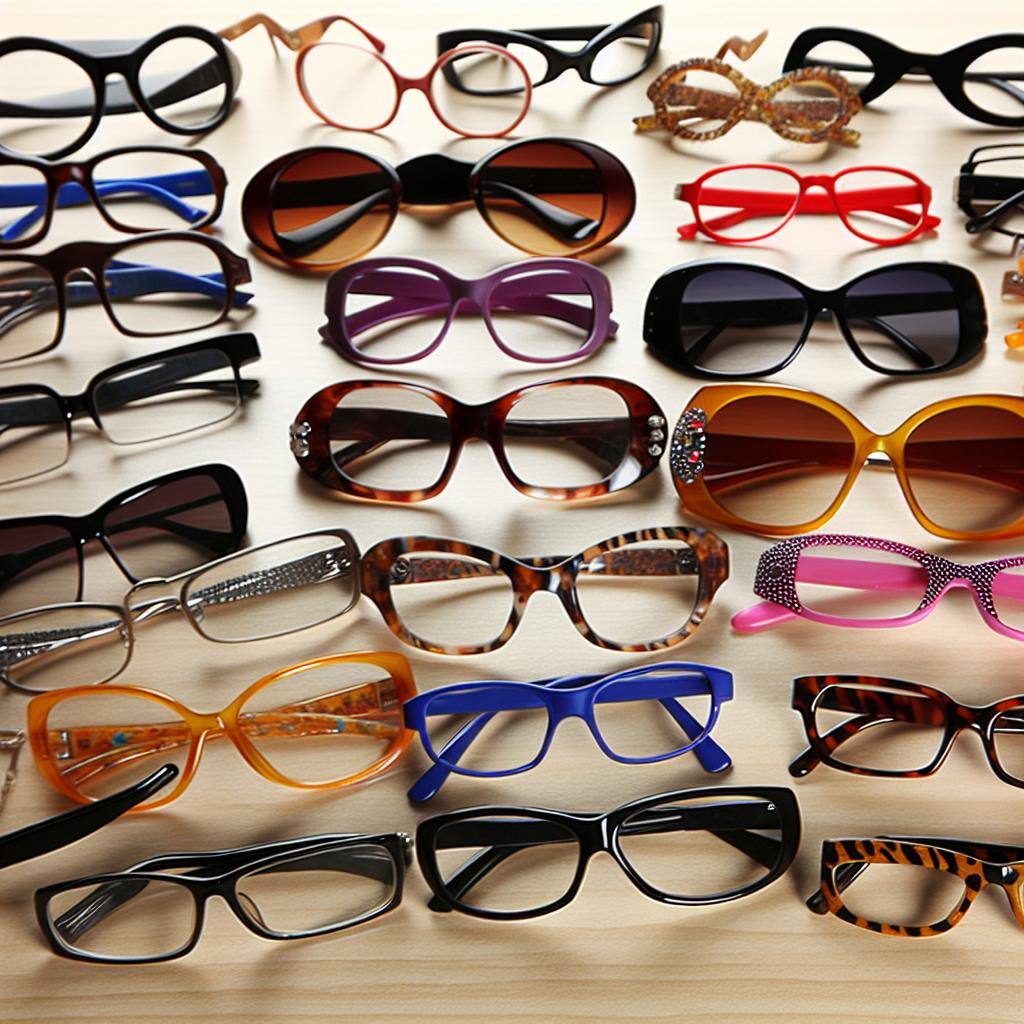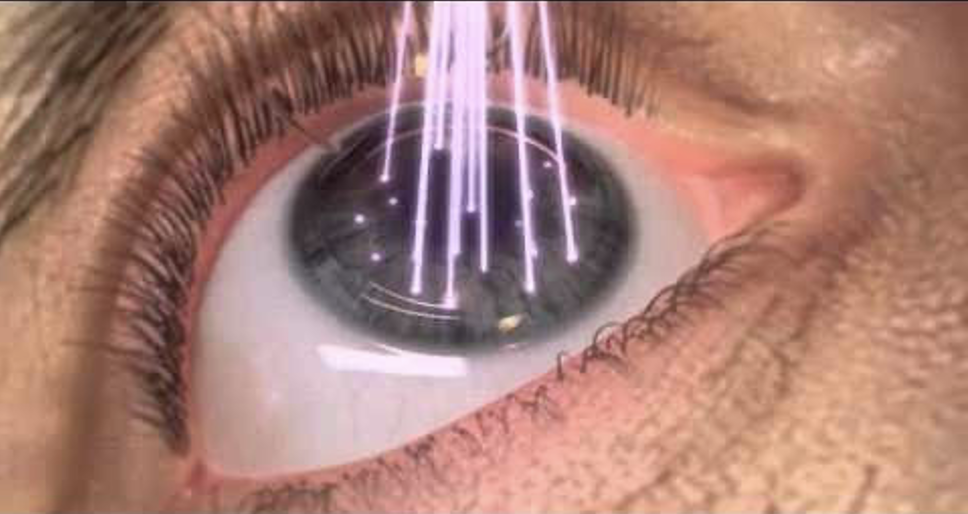Post-LASIK Care: Will You Need Reading Glasses?
Discover whether you will need reading glasses after undergoing LASIK surgery and how to care for your eyes post-procedure.
5 min read
 The Rochester Eye & Laser Team
:
Sep 6, 2023 1:29:23 PM
The Rochester Eye & Laser Team
:
Sep 6, 2023 1:29:23 PM

 Bifocals are eyeglasses that feature two lens powers, allowing wearers to see both near and far objects. In the past, individuals with bifocal vision had no choice but to wear special glasses or contact lenses in order to correct their vision. However, LASIK (Laser-Assisted in situ Keratomileusis) can now free them from this dependence on eyewear. This procedure uses a laser beam combined with sophisticated computer technology to reshape the cornea of the eye, correcting refractive errors like nearsightedness, farsightedness, and astigmatism. It is important for patients considering LASIK who use bifocals to understand what they should expect before and after undergoing surgery as there are certain factors that need to be taken into account during evaluation for eligibility for this procedure.
Bifocals are eyeglasses that feature two lens powers, allowing wearers to see both near and far objects. In the past, individuals with bifocal vision had no choice but to wear special glasses or contact lenses in order to correct their vision. However, LASIK (Laser-Assisted in situ Keratomileusis) can now free them from this dependence on eyewear. This procedure uses a laser beam combined with sophisticated computer technology to reshape the cornea of the eye, correcting refractive errors like nearsightedness, farsightedness, and astigmatism. It is important for patients considering LASIK who use bifocals to understand what they should expect before and after undergoing surgery as there are certain factors that need to be taken into account during evaluation for eligibility for this procedure.
The process for evaluating bifocal wearers for LASIK typically starts with a comprehensive eye exam. During the exam, your doctor will assess the curvature of your cornea and measure its thickness, as well as check to see if you have any pre-existing conditions like astigmatism or dry eyes that could increase the risk associated with this procedure. Your doctor may also use special instruments to test your vision at close range and far away in order to determine what type of correction is needed. Afterward, they can discuss options for achieving optimal vision with either eyeglasses or contact lenses prior to undergoing LASIK surgery.
When it comes to eligibility for LASIK with bifocals, there are certain factors that need to be taken into account such as age (must be 21+), overall health status (free from underlying medical conditions), and refractive error (need an appropriate prescription). Additionally, individuals should not have had any changes in their visual acuity within six months prior to considering this procedure so that an accurate assessment can be made before proceeding forward. It’s important to note that because everyone is different only a trained professional can make a determination regarding whether or not someone is suited for laser eye surgery.
Laser vision correction carries risks even when performed on people who wear glasses or contact lenses without progressive addition lenses (bifocals). However, due to the complexity involved when treating those wearing bifocals, there are additional considerations that must be taken into account by both patient and surgeon alike including proper centration of ablations; ensuring adequate pupil size; avoiding higher order aberrations; dealing with overlap between treatments zones, etc. Therefore it's critical that potential patients take all these aspects into consideration before undertaking a step toward improving their sight.
The benefits of LASIK for bifocal wearers are impressive. With this procedure, individuals can be free from dependence on reading glasses and enjoy a greater sense of freedom and confidence. The overall quality of vision is improved with sharper images and better contrast sensitivity. Those who have undergone LASIK report having an improved ability to do everyday activities like driving at night, playing sports, or simply reading without needing to rely on their eyeglasses or contact lenses all the time.
With LASIK, many bifocals users also experience a more comfortable range of vision – meaning they don’t need to constantly adjust their focus when looking at objects that are close up or far away. Instead, they can just look in any direction and see clearly which results in less eye strain, headaches, or fatigue caused by struggling with different focal points multiple times during the day.
In addition to improving visual acuity, those who wear bifocals find that it is much easier for them to keep up with changing prescription needs as years go by since laser surgery can often be used successfully even if there has been significant changes in nearsightedness over time due its ability to accurately target precise areas within the eye's cornea without causing any damage elsewhere in the eye structure itself.
Overall, modern laser technology provides an effective way for people wearing bifocals to improve their vision while freeing them from traditional eyewear solutions such as glasses and contacts giving them better control over how they view things every day!
Choosing the right LASIK eye surgeon is an important factor in ensuring a successful outcome. It is highly recommended that you research potential surgeons and ask questions to make sure they have experience with treating bifocal wearers, as well as those with other refractive errors. Ask about their success rates for the procedure, how many cases they’ve done, and any safety protocols in place to ensure patient satisfaction.
Once you have chosen your surgeon it’s time for your pre-operative exams which are designed to determine if LASIK surgery is the best choice for you. During these exams, doctors will assess the curvature of your cornea and measure its thickness, check for any pre-existing conditions like astigmatism or dry eyes that could increase the risk associated with this procedure, and use special instruments to test your vision at close range and far away in order to determine what type of correction is needed.
It is also important before undergoing LASIK surgery that individuals should not have had any changes in their visual acuity within six months prior so that an accurate assessment can be made before proceeding forward. After all examinations are complete then patients may receive instructions on what needs to be done prior to having laser eye surgery such as stopping contact lens wear or avoiding certain medications or activities leading up to the scheduled appointment date.
Once the operation has been performed post-op care involves following doctor’s orders regarding wearing protective eyewear (sunglasses) when outdoors, using lubricating drops regularly throughout the recovery period, attending follow-up visits where optical tests are conducted by doctors in order to monitor the healing process plus more depending on individual's case. This comprehensive approach helps reduce risks associated with complications from laser eye surgeries while providing optimal results tailored specifically toward each individual patient's needs including those who wear bifocals!
Out-of-pocket costs for LASIK are an important factor that should be considered when thinking about this procedure. The cost of laser eye surgery can vary depending on the type of technology used, the complexity of your correction, and other factors like location, surgeon experience, and more. It is best to research different clinics and providers in order to compare prices as well as understand what exactly is included in the fee prior to making a decision.
Success rates are another key element you should consider before opting for LASIK surgery. Any qualified ophthalmologist or optometrist will be able to provide information regarding their clinic’s success rate with this procedure which can help inform decisions by providing realistic expectations about outcomes based on past performance with similar cases. You should also ask questions regarding any potential complications or risks associated with undergoing such a delicate operation so that all necessary precautions have been taken into consideration beforehand.
Finally, patient satisfaction is something that must always be taken into account when considering whether or not laser eye surgery is right for you. Before committing it’s important to read reviews from former patients who have undergone LASIK at various clinics around your area in order to understand how satisfied people were with their results after receiving treatment from each provider listed on your shortlist - this way you can make an educated decision about where would be a most suitable place for you personally get the corrective care needed without having any doubts afterward!
In conclusion, it is important to remember that LASIK eye surgery is a major decision and should not be taken lightly. Although the potential benefits of laser vision correction are great for those who wear bifocals and other refractive errors, there are still risks involved which must be carefully weighed before making any commitments. It’s essential to do your research ahead of time – from researching different clinics and providers in your area, reading reviews from former patients about their experiences with each provider listed on your shortlist, and asking questions about success rates as well as any complications or risks associated with such delicate operations – so you can make an educated decision about where would be the most suitable place for you personally to get the corrective care needed without having any doubts afterward!


Discover whether you will need reading glasses after undergoing LASIK surgery and how to care for your eyes post-procedure.

Considering LASIK surgery? Take the time to educate yourself by conducting thorough research and consulting with Dr. Lindahl, the esteemed LASIK...

1 min read
LASIK vision correction surgery treats the refractive errors that commonly require prescription lenses to correct – farsightedness, and astigmatism....